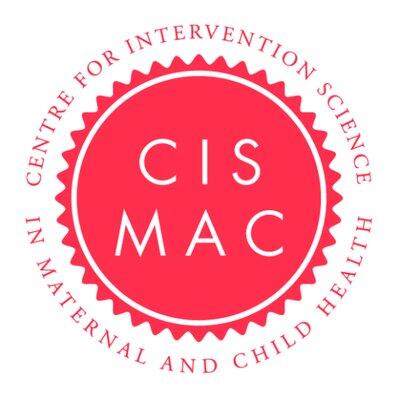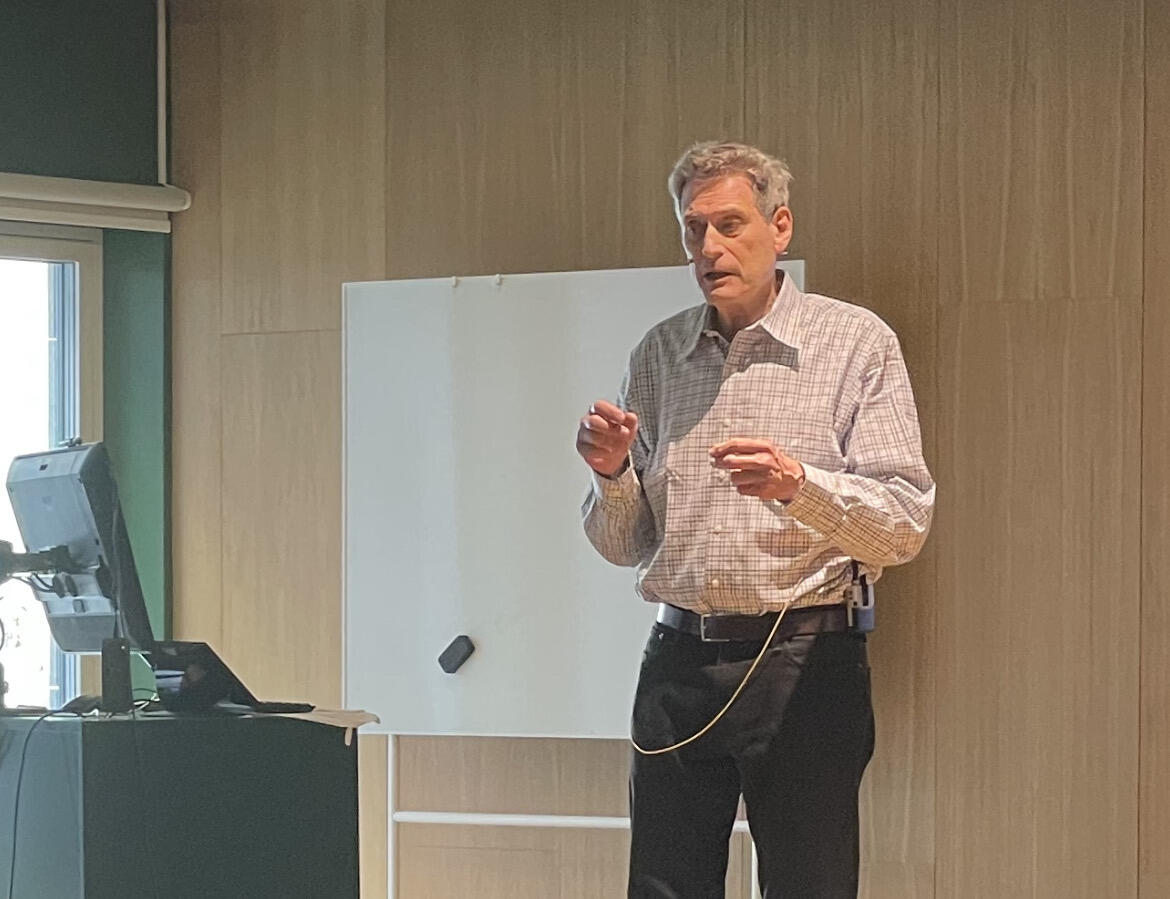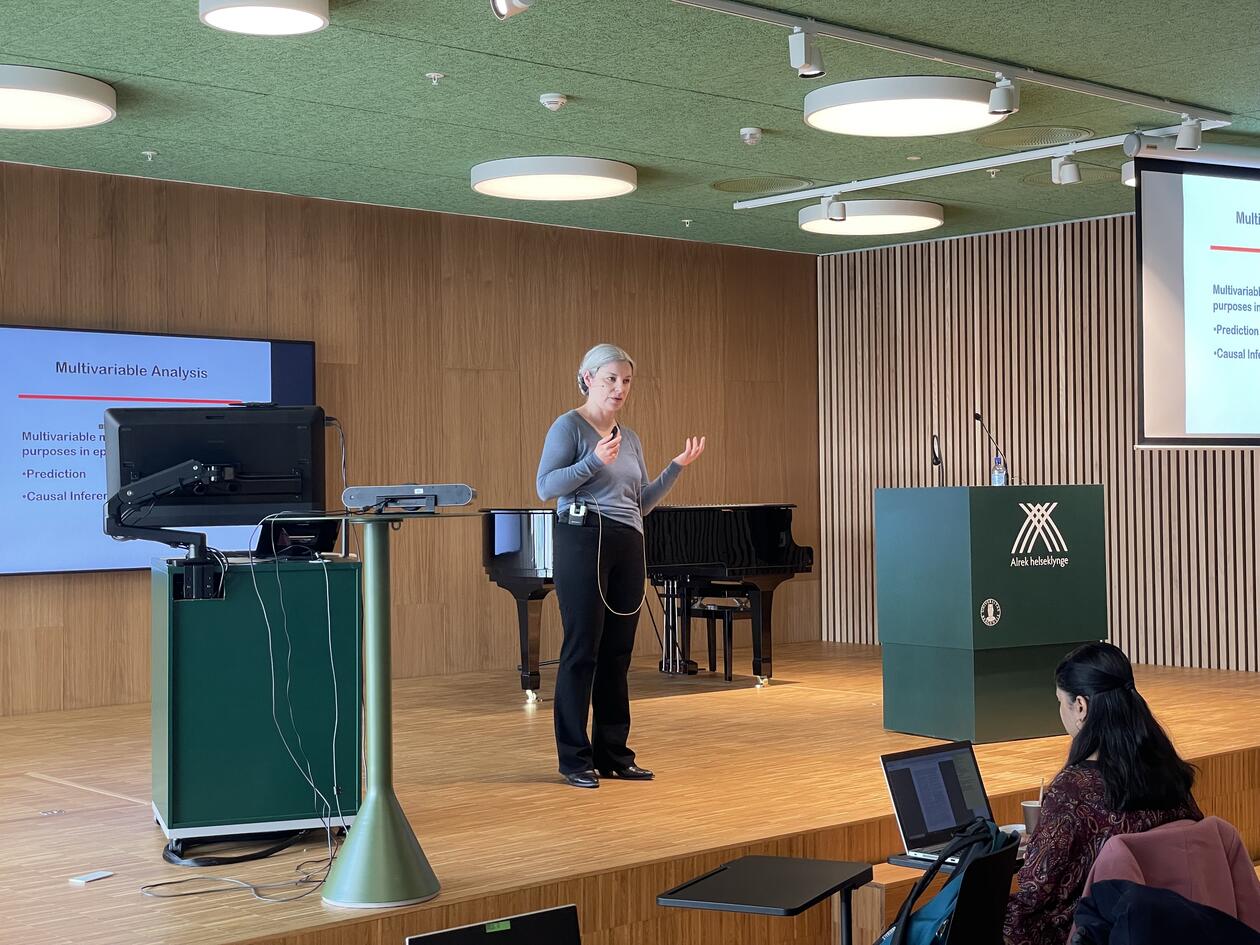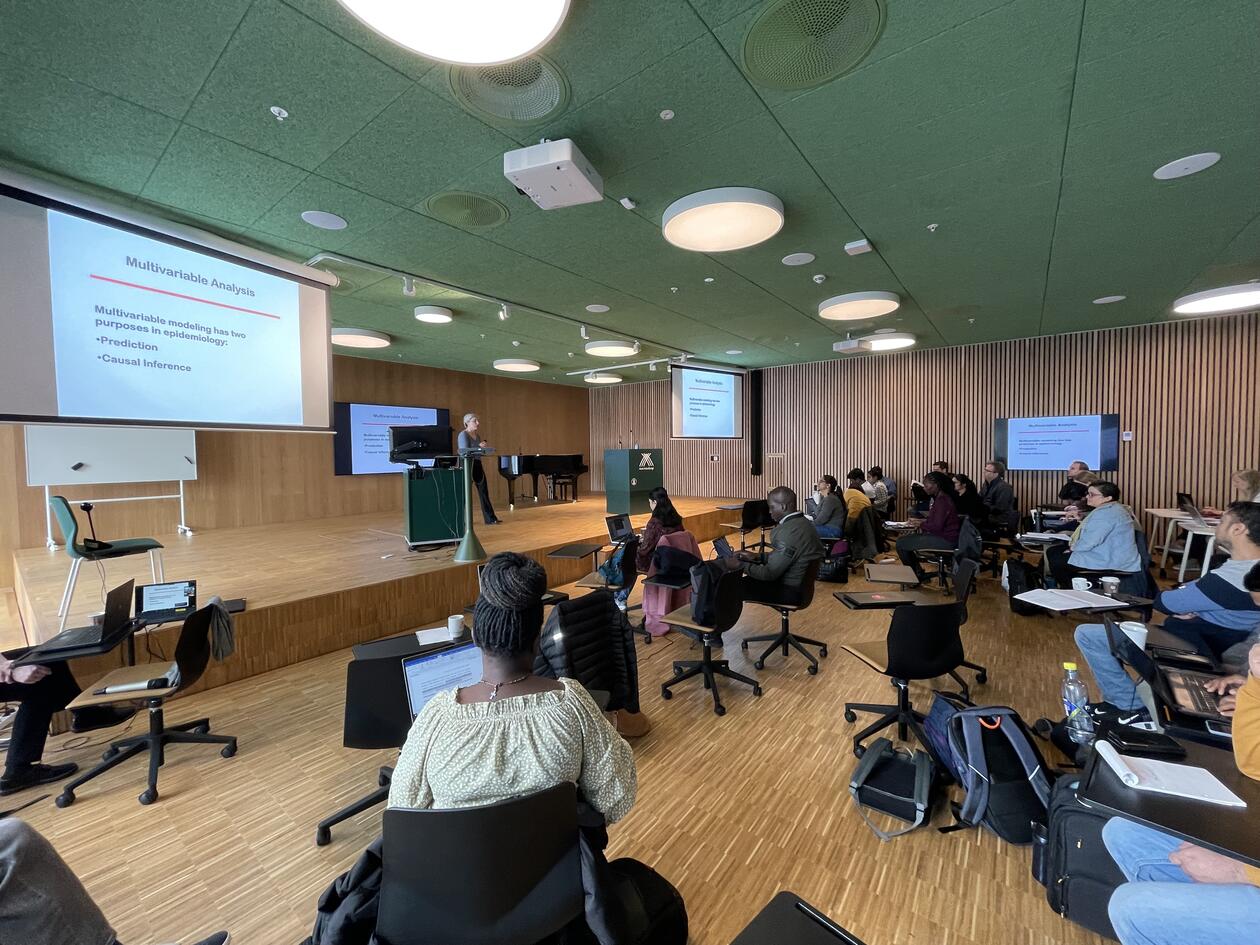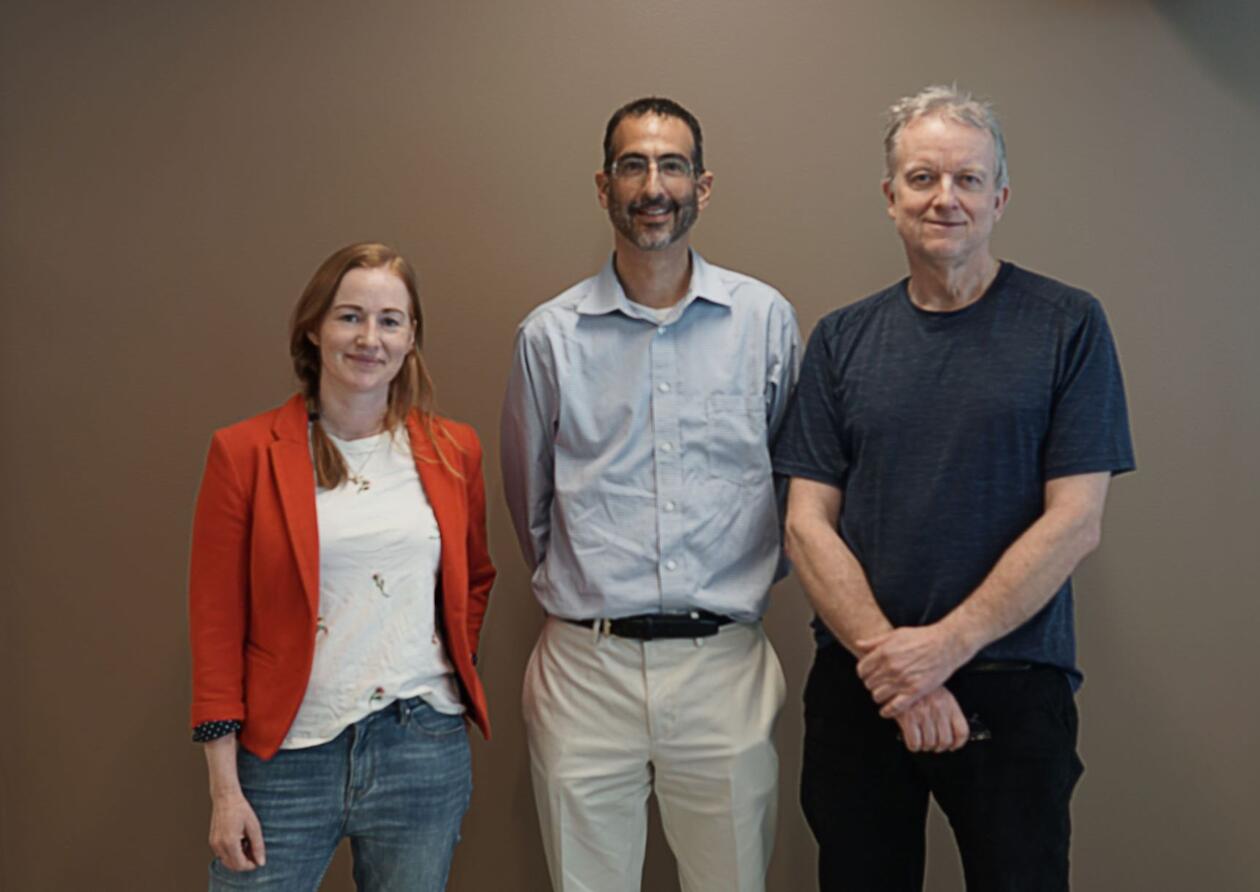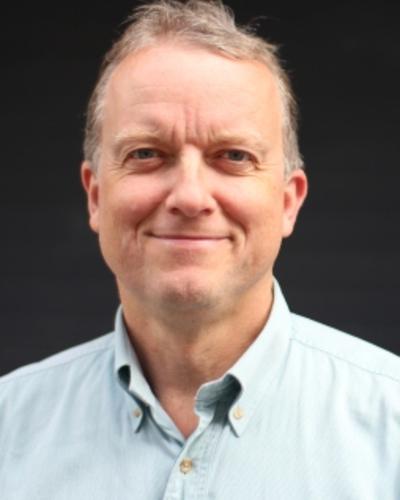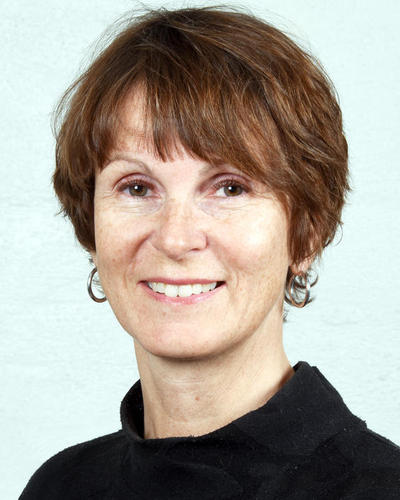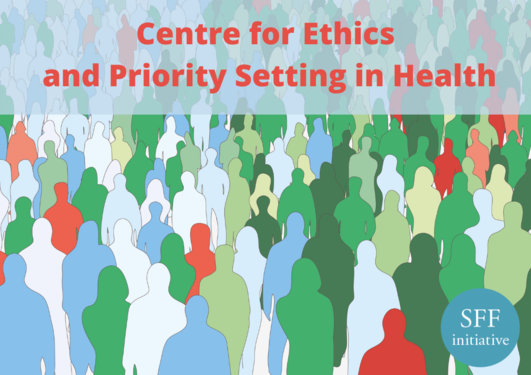Star-studded courses in epidemiology
Epidemiology experts Kenneth Rothman, Vera Ehrenstein and Matthew Fox travelled to Bergen as visiting lecturers for the Centre for Intervention Science in Maternal and Child Health (CISMAC).

Main content
The Centre for Intervention Science in Maternal and Child Health (CISMAC) recently facilitated two high-profile courses in Bergen. From 20-22 April, Kenneth Rothman and Vera Ehrenstein were responsible for a course on Conceptional Foundations of Epidemiologic Study Design and Analysis, while Matthew Fox followed up with a course on Advanced Epidemiology from 25-29 April.
As CISMAC Director Halvor Sommerfelt explained, the idea for the course with Rothman and Ehrenstein came as a result of a meeting with Kenneth Rothman in the year 2000 and was realised in cooperation with the Bergen Centre for Ethics and Priority Setting (BCEPS)
"Ken has written some of the most influential books on epidemiology. I myself attended the courses he held in Boston more than twenty years ago, and became very inspired."
Sommerfelt says that Rothman has a different approach to epidemiology than many others, and that he hopes the students can get a new perspective in how they view the subject.
"His books have definitely influenced our teaching in epidemiology here at the Centre for International Health and the Department of Global Public Health and Primary Care (IGS)", says Sommerfelt.
Students and researchers with backgrounds from more than 20 nations attended the courses. Through its status as Centre of Excellence, CISMAC has the opportunity to bring together people from partner universities in Asia and Africa.
Conceptional Foundations of Epidemiologic Study Design and Analysis is a course about the basic principles of epidemiology. The target group is mainly PhD students and researchers with prior knowledge on the subject. However, in-depth knowledge of epidemiology was not necessary to understand the course.
"There were students from different levels who participated in the course, including both Master's and PhD students. In addition, a number of scientific staff took the course to gain a deeper understanding of epidemiology. Even though the course addresses the basic principles of epidemiology, I believe it is essential to have a sufficiently deep understanding of the basics in order to answer more advanced questions," Sommerfelt explains.
Well prepared
Kenneth Rothman was impressed with the students' commitment during the course. There was one question during the discussion round that both he and Vera Ehrenstein noticed in particular.
"There was one student who asked about the difference between statistical generalisation and scientific generalisation. I think that was a very interesting question. Regardless of whether you are new as an epidemiologist or have worked with the subject for many years, these are questions that are fundamentally important to reflect upon. Maybe it is an issue where we have not gone into enough depth", said Ehrenstein.
"The concept is basic, and it is not certain that you read about it in more advanced epidemiology books, but it is still something you must relate to as an epidemiologist", Rothman added.
Both were happy with the way in which CISMAC had organised their course, and the course participants were well prepared in advance.
"From November to March, we conducted webinars every other week where we went through Rothman's book Epidemiology: An Introduction chapter by chapter. We did this to ensure that the course participants would get maximum benefit from the three-day long course, which was very condensed", Sommerfelt explains.
He says it is widely believed that Rothman's book is a simple introduction to epidemiology. This is an opinion he does not share.
"The book goes into depth on the most fundamental principles in the subject. It addresses issues that epidemiologists at all levels need to reflect on", he says and adds that the participants who had studied the book well and participated in the webinars in advance, benefited in particular from the course. He himself was extremely pleased with the course held by Rothman and Ehrenstein.
"Rothman was exactly as I remembered him. He did not limit himself to presenting only what is in the book. Instead, he helped us to reflect on the basic principles of epidemiology. We must understand that epidemiology is not just about mathematics and statistics. I believe that we who actively engage in epidemiological research, in the pursuit of research funding and in all the work of conducting high-quality studies, find too little time and use too little of our thinking to ask the most important questions. The course by Rothman and Ehrenstein will hopefully help us as researchers and educators to set aside more time to go into depth. This is the only way we will be able to better describe and understand causality. Such an understanding is important for developing new measures and improving the implementation of existing measures that can improve people's health", explains Sommerfelt.
The following week marked the start of Matthew Fox's course in Advanced Epidemiology, which in many ways served as a follow-up course to the one held by Rothman and Ehrenstein.
"I think that many of the participants in Fox's course would have struggled to keep up without having participated in our webinars and the course held by Rothman and Ehrenstein," says Sommerfelt.
Importance of the Centre of Excellence
Head of Department at IGS, Guri Rørtveit, says that the Centre for Excellence (CoE) has played a vital role in facilitating the courses.
"Without the contact network that CISMAC has gained by being a CoE, courses of this type would not have been possible to complete. We are privileged to have this centre, and it also demonstrates how important such centres are for a larger professional environment around the department," Rørtveit says.
Halvor Sommerfelt agrees. He says that a CoE makes it easier to plan courses with such a strong research expertise from abroad.
"A CoE has a long-term perspective, which makes it possible to plan ambitious activities. We also have greater opportunities to solve problems together," he says and adds an example of what he means by this.
"During the course with Matthew Fox, we got a research question from him that I did not fully grasp. I talked to a very skilled Indian course participant, who is one of our postdoctoral research fellows, and she said that she should take a closer look at it. In that way, we both gained a deeper understanding of the question," Sommerfelt explains.
Guri Rørtveit is very pleased with the courses and says that the motivation to arrange similar courses is high.
"As the Head of IGS, I want to increase the department's research efforts in a long-term perspective. The department has two new CoE applications that have reached the second round of evaluation, and this is important for both the department and the university. With a potential new CoE, we will have the opportunity to arrange this type of course and develop the concept further. Our focus is on strengthening the capacity of ongoing research, and if we succeed in our application for new CoE funding, the opportunity will be there to achieve this aim."
She commented that that response to the course has been overwhelming.
"There are students who have been in contact with me and said that it is the best course they have ever attended. Students and researchers across national borders have established new contacts and extended their networks. There is no doubt that research is strengthened by measures such as this."
